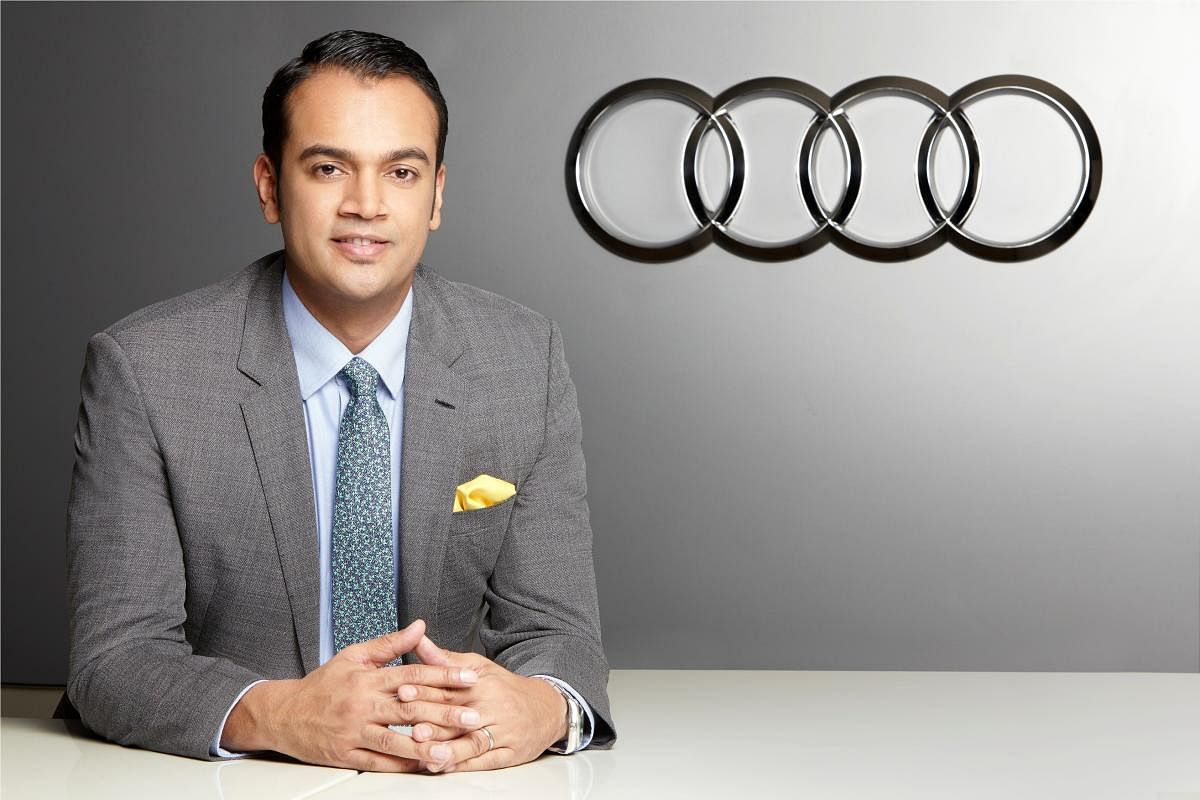
For 11 years now, Audi has seen astounding Indian patrons and first-time buyers with its luxury cars. Growing with the changing pulse in Indian auto tastes, Audi is putting together a multi-pronged strategy involving electric vehicles and digitisation. On the sidelines of the RS5 launch in Bengaluru, Audi India Head Rahil Ansari tells Hrithik Kiran Bagade of DH, how the automaker is taking past learnings to tap a competitive future. Edited excerpts:
Why did you choose Bengaluru to launch the RS5?
The launch of the RS5 was a special occasion. Over the past few years of Audi’s India operations, we’ve been conceived as a young dynamic brand, attracting a lot of young minds, and Audi appeals to all. We’ve seen tremendous growth in Karnataka and Bengaluru, and that’s the reason why we set the RS5 launch to be here.
Please share your views on the Bengaluru luxury car market.
In Bengaluru and in Karnataka, over the past six months, it was surprising that the S5 did exceedingly well. Traditionally, you would say that the S5 is a sports car and would sell more in Mumbai or Delhi. Now, we have a very good customer base in Bengaluru, so that’s why we believe that the RS5 would also do very well here.
The reason is a cultural mindset change that’s happening across India. People want to experience luxury cars and even sports cars.
How is the South Indian market faring, as seen by Audi?
The South is crucial, especially with Karnataka and Bengaluru being the hub. We believe that overall South India will grow much faster than some other areas in the country, especially if you look at Tier-II and III cities. Bengaluru is one of the top cities even in terms of SUV sales. We were the first to bring many SUVs and crossovers to India. In particular, in Bengaluru, there is a shift towards SUVs from 30% to 50%.
How is the Indian market maturing for luxury cars?
In principle, the luxury market has done very well in India over the past few years, except during 2016. However, when we look at the past nine to 12 months, there are certain developments that make it more challenging. The GST was a positive step, but unfortunately five weeks after its implementation, the cess hike was introduced. Now with the Union Budget further increasing prices, it becomes more challenging for the luxury segment.
We see people want to afford luxury cars. If you look at the entry-level luxury segment, it’s quite often a first-time purchase. Customers don’t say they ‘bought an A3 or Q3’, but ‘an Audi’, and I’m very proud of that. It’s something special to buy a luxury product. We believe that you should make it more affordable and accessible to people, because they are waiting and willing to experience luxury and at the same time, the tax should be more favourable for such products. The more luxury cars you sell, the more tax revenue you generate.
What is Audi’s vision as India and the world push towards electric mobility?
We fully believe in the future of EVs. Globally, Audi is launching three EVs by 2020, and by 2025, we are planning to have at least 40% volume share from only EVs, of the entire Audi volume sales. Looking at the Indian market, first of all, auto manufacturers are investing heavily in this technology. Both the local as well as global manufacturers are bullish at the same time. And there has been some progress in charging infrastructure, a pilot in Nagpur, and even Bengaluru, Mumbai and Delhi are planning to develop the needed infrastructure. We’ll also be in a position to launch an EV in 2020 latest in India, however, we will make a decision only when we have clarity on the progress in infrastructure. Launching a car or an EV is the easiest, but that’s where our responsibility starts for the customer. For instance, you drive from Bengaluru to Chennai, and find no charging stations en route, it’s something that needs to be taken care of.
How do you plan to maximise your presence in the Indian market?
We plan to increase our presence in terms of activities. Audi created three verticals last year - network, customers and products. We’re now focusing on a fourth vertical, which is digital. We have done tremendously well on social media, and as a brand, we want to be available 24/7 for the customer. We will also have more digital elements in our etail environment. We’ve even revamped our website.
It is very important for us to make use of the aspect of customer, for which you should experience the product. To connect to the customer, we hold the Audi Weekender, where you have the opportunity to drive the A, R and Q models in a safe environment and test them off-road in a circuit and on a track, with professional instructors. Our simple philosophy is, it’s not just about buying the car, but also experiencing it -touching, sitting and getting a feel of Audi’s quality.
What’s your digital strategy?
This is a very cyclic business. When you roll out new cars, in order to generate volumes, it has to be the right amount. For instance, if you launch 10 products successively, where are you going to display all of them together in one showroom? This is where digital comes into play.
Future digital technologies will enable us to experience cars in a different environment; at the same time, it is linked to capital and costs. It’s high investment and we believe that it’s better to grow profitably like we did last year, than to just over do it for the sake of volumes. If you do it in a sustainable manner, you will have long-term growth, because we’ll be able to reinvest in the brand.